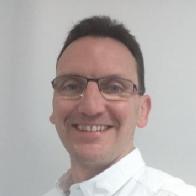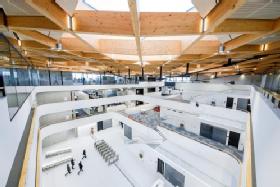Industry Transition
Daniel S. Fowler, Warwick Manufacturing Group
I am a Research Fellow in WMG's Secure Cyber Systems Research Group. My research focus is on engineering and software-based solutions to reduce cyber-attack threats against a variety of systems. New and emerging systems are part of everyday life, or will soon be, an example of a system that needs protection from hackers is a connected and autonomous (i.e., self-driving) vehicle because it has the potential to cause serious injury and damage.
My position at WMG is my first post-doctoral role, and together with my doctoral studies, I have approximately five years' experience as an independent researcher. I am very much an early career researcher, despite my previous extensive experience.


After a few years based at home, when my children were young, I transitioned to research, obtaining a Masters in Forensic Computing and a Doctorate in Automotive Cyber Security. Returning to University to perform postgraduate study and research after a career is certainly a challenge. However, being amongst the diverse people at a modern University is invigorating and enlightening. A different mindset is required for a University-based research role, however, finding help and advice was straightforward. It was wonderful to discover how engaging and open people in academia can be.

It was my PhD that provided me with the opportunity to join WMG. The help of my new colleagues, supervisor, and the helpfulness of the wider Warwick community meant it did not take long to feel at home. The onboarding process at the University is good, there is plenty of help and information provided, though better signposting of the myriad of things that needs to be done when someone joins such a large University is required. There is always a better way of performing a process, and the University is looking at how the induction of joining researchers can be improved, some formal mentoring scheme for the first month or two of a new researcher's start may be worth considering, even for those of us with experience from previous jobs.
At Warwick, I have already been part of successful teams delivering a variety of research projects. Furthermore, I now have an improved sense of achievement compared to my previous career, as the publication of work makes me feel I am producing longer-lasting contributions to society. I like how the impact of your work is considered important, unlike the purely commercial world, where the monetary considerations and return on investment were often the highest consideration. I feel the move to research has made a positive impact on my career, even if a little later in life than for other researchers with whom I work.
